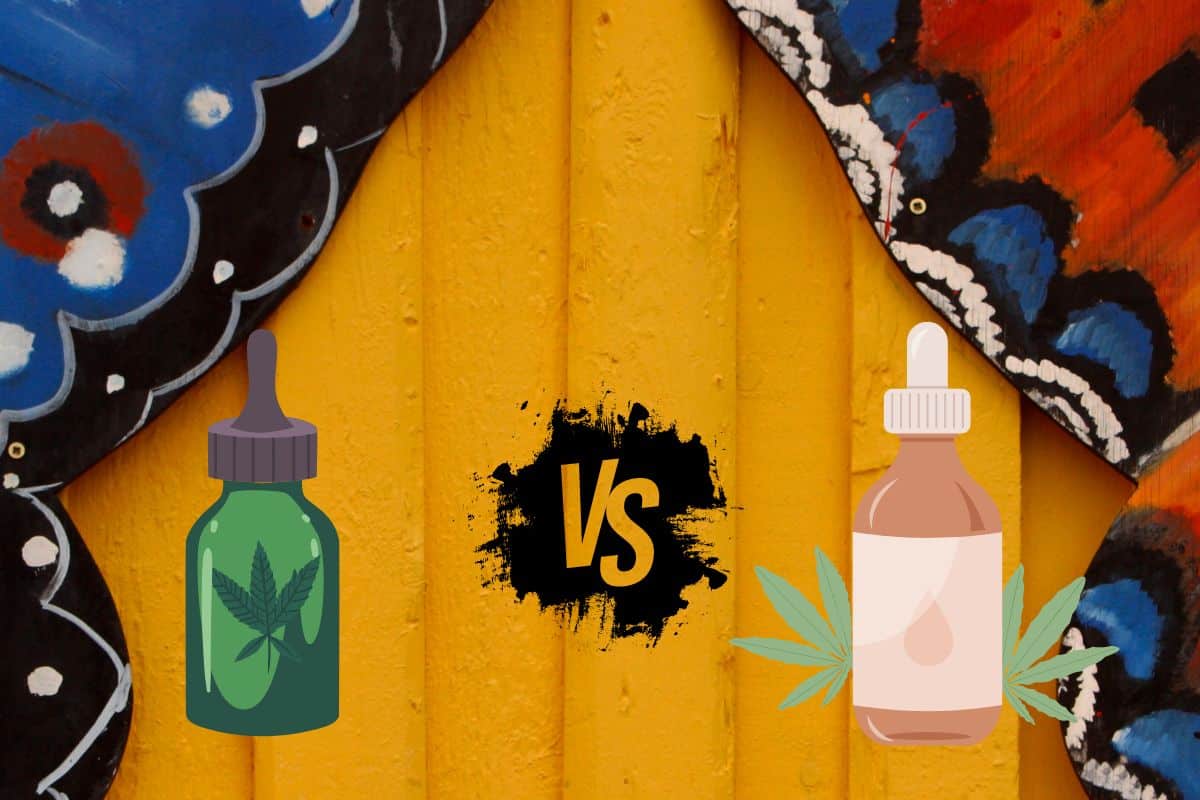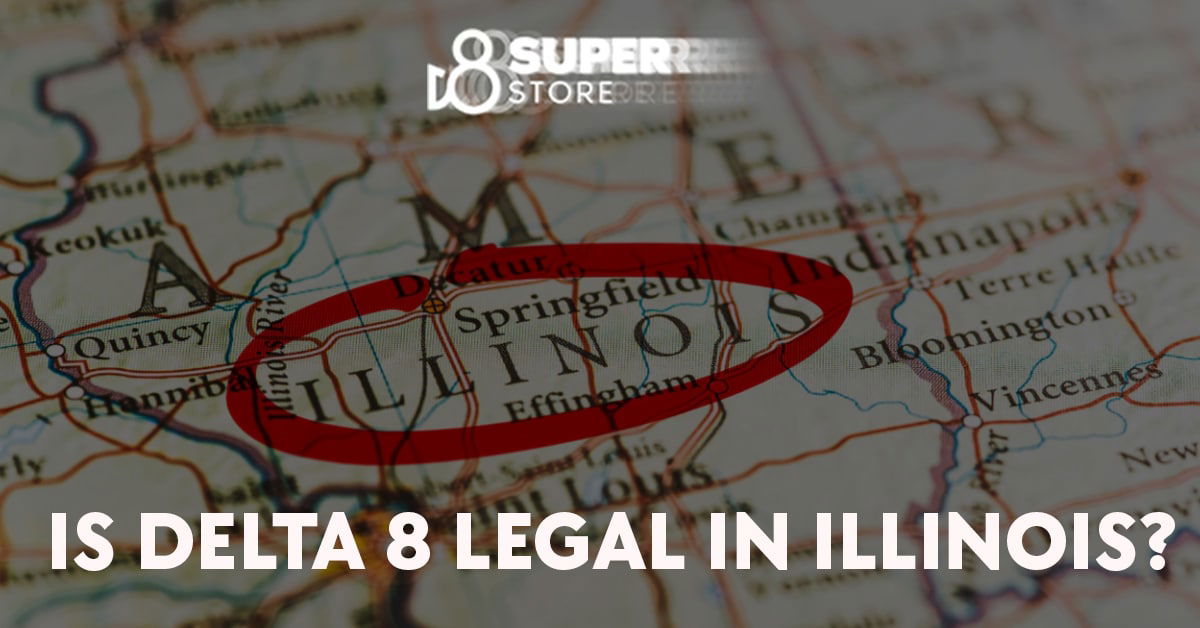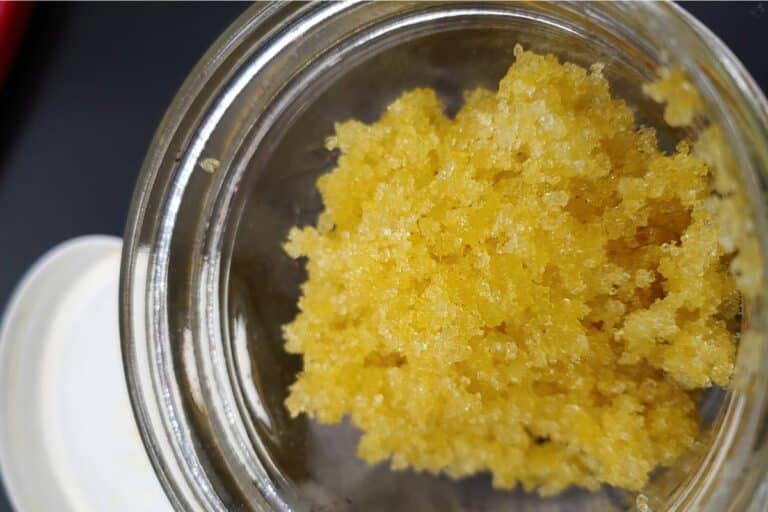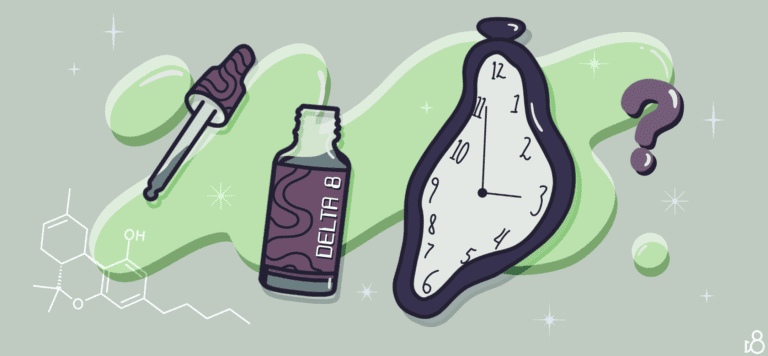Is Delta 8 Legal in Illinois? An Insightful Overview
Lately, **Delta-8 THC** has caught the attention of folks hunting for a fresh buzz, unlike the usual Delta-9 THC vibe. This cousin to hemp promises a smoother journey packed with interesting benefits. Yet, the big question is, can you legally have it? Especially in Illinois, there’s a lot of scratching heads over if it’s okay to have it around.
In Illinois, cannabis laws have been evolving, with the state legalizing both recreational and medical use. However, when it comes to Delta-8 THC, things are a bit more complicated. While the 2018 Farm Bill federally legalized hemp and its derivatives, the distinction between Delta-8 THC and Delta-9 THC has led to ambiguity in the law.
Key Takeaways
- Delta-8 THC’s legality in Illinois may be unclear due to differences between state and federal laws.
- The 2018 Farm Bill’s impact on hemp-derived Delta-8 THC remains a subject of debate.
- Consumers should be cautious about product quality and safety when purchasing Delta-8 THC in Illinois.
Illinois Laws and Delta-8
In Illinois, the legal status of Delta-8 THC products is not entirely clear. Delta-8 is derived from hemp, rather than marijuana, which has led to some confusion regarding its classification under state and federal regulations. Due to the hemp loophole, Delta-8 THC has been able to escape stringent regulations that apply to other cannabis products1.
According to Illinois state law, the Cannabis Control Act includes regulation for both marijuana and hemp-derived products. However, the definitions and categorizations of Delta-8 THC products remain ambiguous in the legislation2. This has led some businesses to sell Delta-8 THC products, such as Live Resin Carts, with the assumption that they are legal since they are derived from hemp.
It is crucial for both consumers and businesses in Illinois to remain aware of any changes in legislation regarding the legality of Delta-8 THC products. As it stands, there has been no clear ruling on the legal status of Delta-8 in Illinois, leaving a gray area for its regulation.

Delta-8 THC Vs Delta-9 THC
Delta-8 THC and Delta-9 THC are both naturally occurring cannabinoids found in the cannabis plant. While they share some similarities, they also have distinct differences that impact their legality and effects on users.
One of the primary differences between Delta-8 THC and Delta-9 THC is their chemical structure. Although both are forms of tetrahydrocannabinol, Delta-8 THC has a slightly different structure, resulting in different effects on users. Delta-8 THC is often considered to be a milder form of THC, providing a more functional and clear-headed experience when consumed, compared to the stronger, more psychoactive effects of Delta-9 THC.
In terms of legality, the 2018 Farm Bill differentiated between hemp-derived products and marijuana-derived substances. This legislation specified that hemp plants containing no more than 0.3% Delta-9 THC are legal, resulting in products containing Delta-8 THC being considered legal as long as they meet that criteria. While Delta-9 THC products are more tightly regulated due to their psychoactive effects, Delta-8 THC has gained popularity as a more accessible and potentially legal alternative for users.
Another important distinction between Delta-8 THC and Delta-9 THC compounds is their interaction with the body’s endocannabinoid system. Both Delta-8 and Delta-9 THC bind to the CB1 and CB2 cannabinoid receptors in the body, but Delta-8 THC has a lower affinity for these receptors, which contributes to its milder effects. In contrast, Delta-9 THC has a higher affinity for these receptors, resulting in more potent, psychoactive effects on users.
Some users prefer Delta-8 THC products, such as THCa Vape Cartridges, due to their less intense psychoactive effects, compared to Delta-9 THC. Additionally, the availability and range of Delta-8 THC products continue to grow, further establishing its position as a popular choice for cannabinoid users.
In conclusion, when comparing Delta-8 THC to Delta-9 THC, it is important to consider their chemical structure, effects on the body’s endocannabinoid system, and legal status.
The 2018 Farm Bill and Its Impact
The 2018 Farm Bill had a significant impact on the legality of hemp and its derivatives in the United States. Prior to the bill’s enactment, hemp fell under the classification of marijuana within the Controlled Substances Act. This classification made it illegal to produce or sell products derived from the hemp plant.
The 2018 Farm Bill changed the landscape for the hemp industry by legalizing the production and sale of hemp and hemp-derived products at the federal level. It removed hemp from the Controlled Substances Act definition of marijuana and redefined hemp as the Cannabis sativa L. plant containing no more than 0.3% delta-9-tetrahydrocannabinol (THC) on a dry-weight basis. The new definition allowed for legal cultivation, production, and distribution of hemp and its derivatives, providing it met the specified THC threshold.
This development in federal law led to the establishment of the Industrial Hemp Act, which introduced state-wide hemp regulations in alignment with the 2018 Farm Bill. In Illinois, the Industrial Hemp Act permits the growth, cultivation, and processing of industrial hemp, following the federal guidelines.
One of the popular yet controversial hemp derivatives is Delta-8 THC, a compound with a close chemical structure to the well-known Delta-9 THC found in marijuana. The 2018 Farm Bill’s ambiguous wording and focus on Delta-9 THC created a gray area where some experts argue that Delta-8 THC is federally legal due to its hemp origins. However, others assert that any synthetic conversion from hemp-derived CBD to Delta-8 THC would still classify it as an illegal substance.
In Illinois, the specific legality of Delta-8 THC remains unclear. Although there is no explicit law banning or regulating the sale and use of Delta-8 THC products, disagreements among legal experts and potential enforcement actions create uncertainty for consumers and businesses dealing with Delta-8 THC.

Recreational and Medical Use
In Illinois, both recreational and medical marijuana are legal. The state legalized medical marijuana with the Compassionate Use of Medical Cannabis Program Act in 2013, which allowed qualified patients to apply for a medical card to access cannabis products for medicinal purposes.
Recreational marijuana became legal in Illinois on January 1, 2020, providing consumers with the option to purchase and use cannabis without a medical card. This includes a variety of products such as Delta 9 Vape Cartridges, Delta 9 Gummies, and Delta 9 Disposables.
Illinois residents, who are 21 years or older, can purchase and possess up to 30 grams of marijuana flower, five grams of marijuana concentrate, and edibles containing no more than 500 mg of THC. Non-residents may possess half of these amounts. It’s important to note that marijuana consumption is not allowed in public spaces, and it is still illegal to drive under the influence of the substance.
While Delta 8 THC, a less potent and psychoactive cannabinoid, is not explicitly mentioned in Illinois’ marijuana laws, it could be inferred that it falls under the same regulations as other recreational cannabis products. This means that Delta 8 THC may be legally accessible to Illinois residents and non-residents who meet the age requirement and possession limits outlined in the state’s legislation.
In conclusion, recreational and medical marijuana consumption is legal in Illinois, allowing individuals to access a variety of cannabis products without breaking the law. However, it is essential to remember the guidelines in place and always consume responsibly.
Delta-8 Products and Availability
Delta-8 THC is gaining popularity due to its reported milder effects compared to Delta-9 THC. As a result, various Delta-8 products are available on the market, including flower, tinctures, vape cartridges, disposable vapes, gummies, edibles, and concentrates.
In Illinois, purchasing Delta-8 THC products can be done both online and in physical stores, such as dispensaries and specialized shops. Online stores often provide an extensive selection of products compared to brick-and-mortar stores. Buying online offers access to 2 gram vape cartridges or 510 threaded vape cartridges, allowing users to explore various Delta-8 options.
Dispensaries in Illinois may also carry a variety of Delta-8 products, though availability may be limited compared to online sources. It is always best to research a dispensary’s product selection before visiting. Additionally, it is essential to understand the legal status of Delta-8 in Illinois and ensure you are purchasing from reputable retailers.
As Delta-8 THC products grow in popularity, there is a corresponding increase in the types and formats available. Consumers can experiment with different delivery methods to find the one that best suits their preferences and needs. Overall, the availability of Delta-8 products in Illinois allows those interested in exploring this cannabinoid to have numerous options for its consumption.

Buying and Accessing Delta-8
In Illinois, purchasing delta-8 products is not as straightforward as buying other hemp-derived items. Delta-8 has a complicated legal status, and consumers must be cautious when seeking it out. Retailers that sell delta-8 products are in a legal gray area, and some may not have the proper licenses or follow state regulations for selling hemp-derived compounds1.
In Chicago and other Illinois cities, registered dispensaries are an excellent place to begin your search for delta-8 products. These establishments are more likely to operate within state guidelines and ensure that the items they sell meet legal requirements4. Some dispensaries may even offer a range of delta-8 products like THC-O cartridges and THC-O disposable vape pens.
However, not all delta-8 products are equal in quality, and consumers should look for reputable retailers that provide third-party lab testing and accurate labeling of their items4. As mentioned earlier, some delta-8 retailers are not licensed or do not follow state laws. Thus, it is the responsibility of the consumer to verify the legitimacy and safety of the products they wish to purchase2.
When looking to buy delta-8, be aware that there might be age requirements for purchasing these products1. While state laws may not explicitly regulate the minimum age for delta-8 sales, retailers often implement their policies. It’s essential to check with the specific retailer or dispensary regarding their age verification process.
In conclusion, while delta-8 can be found in Illinois, it can be challenging to navigate the legal and regulatory landscape. Consumers must be diligent in researching where they buy their products, ensuring they are sourced from reputable and licensed retailers or dispensaries offering high-quality, lab-tested items with accurate labeling4.
Safety and Quality Control
Delta-8 THC, one of the many cannabinoids found in the cannabis sativa L. plant, has gained popularity due to its psychoactive effects and potential medicinal benefits. Illinois, like many other states, regulates marijuana products including delta-8 THC derived from hemp. Ensuring safety and quality control of such products is important for both public health and legal compliance.
Hemp-derived products, including delta-8 THC, can be legally sold provided they meet certain criteria. This includes having no more than 0.3% delta-9 THC content and being sourced from federally compliant hemp. However, the rapidly growing market has raised concerns about the safety and quality of delta-8 products, as not all manufacturers adhere to strict quality control measures.
Lab test results play a crucial role in ensuring the safety of delta-8 products for consumers. Third-party testing can help verify the potency, purity, and presence of any harmful contaminants like pesticides or residual solvents. Consumers are advised to look for products with accessible and transparent lab test results, and to consider reputable companies that prioritize quality control.
In summary, when choosing delta-8 THC products in Illinois, it is essential to consider the source, manufacturing process, and lab test results to ensure a safe and high-quality experience. By staying informed and vigilant, consumers can enjoy the potential medicinal benefits of delta-8 THC while minimizing risks to their health.

Regulations and Enforcement
In Illinois, the legal status of Delta-8 THC is influenced by both federal and state regulations. The 2018 Farm Bill removed hemp and its derivatives from the Controlled Substances Act, as long as the product contains less than 0.3% Delta-9 THC. This led to a surge in Delta-8 THC products due to its distinct chemical composition, despite its psychoactive properties.
The Illinois Department of Agriculture is responsible for implementing and enforcing the state’s hemp regulations. However, it is important to note that the legality of Delta-8 THC in Illinois depends on its source. When derived from hemp, it is considered legal under the state and federal rules. However, if it is synthesized from marijuana, it would be classified as a controlled substance and therefore deemed illegal.
At the federal level, the Food and Drug Administration (FDA) is yet to approve Delta-8 THC for consumption or sale. The Drug Enforcement Administration (DEA) has also issued an Interim Final Rule that may classify Delta-8 THC as a controlled substance. However, enforcement of this rule has been lacking, leaving Delta-8 THC in a legal gray area.
Illinois lawmakers are currently monitoring the situation and have not taken any significant actions to specifically regulate Delta-8 THC. This may be due to the ongoing debate surrounding the legal status of tetrahydrocannabinols and other hemp-derived compounds.
In conclusion, the legal status of Delta-8 THC in Illinois is complex and subject to ongoing developments. While derived from hemp and containing less than 0.3% Delta-9 THC, it is considered legal, but its overall regulatory status remains uncertain.
Potential Benefits and Risks
Delta 8 THC is a cannabinoid found in cannabis plants, and is known for its psychoactive effects, similar to those produced by its more well-known cousin, Delta 9 THC. However, Delta 8 is often considered a milder and less potent version, sometimes referred to as “diet weed”. Products like the Elev8 Collection contain Delta 8 THC for those seeking a less intense high.
One potential benefit of Delta 8 is its ability to help alleviate anxiety. Some users report that it provides a more calming and relaxing experience compared to Delta 9 THC, which can sometimes induce anxiety or paranoia in some individuals. The milder high produced by Delta 8 can be appealing to those looking for a more balanced and manageable experience.
On the other hand, Delta 8 THC, like any other cannabinoid, does come with its own set of risks. The fact that it is psychoactive means that it can impair cognitive and motor functions, making activities such as driving or operating machinery hazardous. Additionally, it is important to note that Delta 8 products may contain synthetic or potent derivatives like HHC, which could lead to varying effects and potential health concerns.
It is crucial for consumers to educate themselves about the various Delta 8 products available on the market, and to use these products responsibly. For those living in Illinois, it is also essential to stay informed about the legal status of Delta 8, as regulations and laws can change over time.
In summary, Delta 8 THC offers potential benefits for those seeking a milder alternative to traditional marijuana products, but it also comes with its own set of risks and responsibilities. Consumers should carefully consider these factors before incorporating Delta 8 into their routines, and always prioritize safety and legality above all else.
Frequently Asked Questions
Are delta-8 products legal in Illinois?
Delta-8 THC is considered legal in Illinois because it is derived from hemp, which was legalized on a federal level with the 2018 Farm Bill. However, it is essential to note that regulations surrounding its sale, possession, and use can vary and change over time.
Can I order delta-8 online legally in Illinois?
Yes, you can legally order delta-8 THC products online in Illinois. However, it is crucial to verify the legality and credentials of the online retailer, ensuring that the products comply with state and federal guidelines.
What age is delta-8 legal in Illinois?
The minimum age for purchasing delta-8 THC in Illinois is 21 years old, consistent with the state’s recreational marijuana laws. Be aware that some retailers may require valid identification to verify your age.
Is Delta-8 THC banned in any nearby states?
Delta-8 THC is subject to different regulations in different states, and some nearby states may have restrictions or outright bans. For instance, Iowa has placed delta-8 THC on its list of controlled substances, making it illegal. Always consult the laws and regulations of the specific state you are inquiring about.
What is the legal status of Delta-9 in Illinois?
Delta-9 THC is legal for both medical and recreational use in Illinois. Medical marijuana has been legal since 2013, and recreational use was legalized in 2020. However, there are specific guidelines and restrictions governing possession, sales, cultivation, and use that must be adhered to.
Are there any restrictions on delta-8 products in Illinois?
While delta-8 THC is legal in Illinois, there may be restrictions on its sale, possession, and use, similar to the state’s rules governing marijuana products. It is essential to be aware of both state and city-specific regulations and ensure that any delta-8 products you purchase comply with those guidelines.
Footnotes
- https://ajph.aphapublications.org/doi/full/10.2105/AJPH.2021.306499 ↩ ↩2 ↩3
- https://books.google.com/books?hl=en&lr=&id=bWd2EAAAQBAJ&oi=fnd&dq=Illinois+Laws+and+Delta-8+is+delta+8+legal+in+illinois+&ots=3WUH1I21gM&sig=X63NxHjbSoH5JP6vOui_31VzK-k ↩ ↩2
- https://d8superstore.com/category/live-resin-carts ↩
- https://heinonline.org/hol-cgi-bin/get_pdf.cgi?handle=hein.journals/indana98§ion=8 ↩ ↩2 ↩3 ↩4






